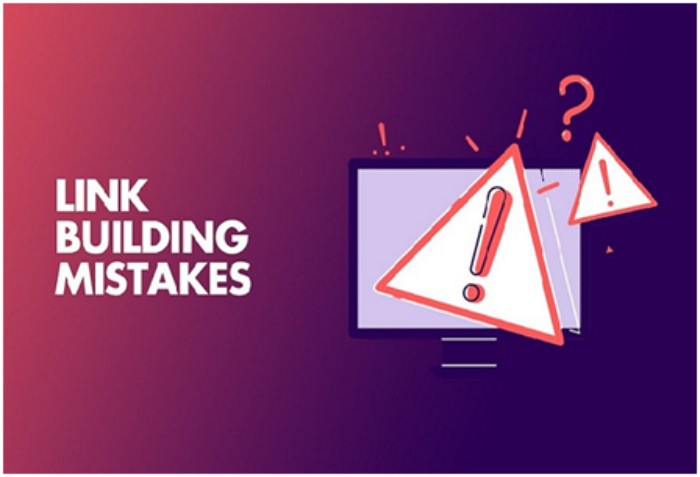
Link Building is a useful SEO strategy that businesses and digital marketing experts have used for quite some time. Link building is particularly effective for small bloggers, creative content writers, and web-based businesses that are just starting.
It is a low-cost strategy and offers multiples benefits. It brings you a lot of traffic from other popular websites and platforms while also improving your ranking for search engines.
However, people who are new to link building often make rookie mistakes that backfire their link-building efforts. In this blog, we look at some of the link-building mistakes you should avoid as a small business operator.
Purchasing Backlinks
As a business, you can buy links online from many popular platforms. But, unfortunately, search engines cannot tell the difference between paid links or those that are naturally earned.
However, engaging in this practice will build bad habits. You will not focus on producing good quality content, which is necessary for backlinks to work. Purchasing links will also be a burden on your marketing budget.
If you are caught, your website ranking will take a severe hit. This is why buying backlinks is not viable, at least as a long-term strategy.
Link Spamming
Link spamming is the practice of creating too many backlinks from different platforms in a very short amount of time. This happens when users post comments on blogs and online forums with links pointing back to their website.
The practice is also used by guest blog writers who submit many posts on different guest blogging sites in quick succession.
Link spamming can improve the ranking for a brief period of time, but the end result is that the users and the spammed website are blocked by the targeted site.
Anchor Text Overload
Anchor text overload is a problem related to link spamming. The referring website uses anchor text to tell the user and search engine what your website is all about.
When you keep using the same anchor text every time you create a new backlink on a different referring site, it will trigger a warning to the search engine. The search engine will flag it as an attempt to manipulate the sources linking to your website, and you will get penalized.
The solution is to use different anchor text every time you link back to your website.
Pitching to Wrong Platforms
You can get legit backlinks from a hundred different websites. However, it they are not related to your industry and business, they will not help you climb in search engine rankings much.
Modern search engine algorithms are quite sophisticated, and they keep getting better at identifying relevance. For example, Google takes your website’s relevance to the linking site into considerations before assigning a value to the link.
If you are looking to seriously benefit from backlinks, focus on reaching out to businesses that are related to your website.
Excessive Reciprocal Links
Reciprocal linking is quite old and common in the industry. You post links to an affiliated business on your platform, and they will do the same for your website. As a result, both of you benefit in search rankings.
While the practice has been useful in the past, it is dying out of fashion now. Search engines like Google issued new guidelines in recent years that forbid the excessive exchange of links.
While you can still add reciprocal links to a few websites without penalty, make sure that you are not doing it too much.
Backlinks from Sites with Bad Reputation
Many websites get blacklisted by search engines for ethical reasons or illegal content. Websites that promote hate speech, racism, child abuse, animal cruelty, terrorism, torture, illegal pornography,and gambling are flagged negatively by search engines.
You should not link to such a website on your platform. Also, try to avoid getting backlinks from such websites as they can negatively affect your SEO efforts.
Getting No Follow Links
Links from other websites can be divided into two types; No Follow and Do Follow.
Both of them look the same, but there is a slight difference between the two. No follow links have a code that tells search engine crawlers like Google not to follow the link. The result is that there is no effect on the linked website’s ranking for the search engine.
Do follow links are used in ranking calculations by the algorithm.
If you are looking to optimize your search engine ranking, you should focus on getting more do-follow links than no-follow links. Of course, some bloggers and businesses are happy to get either, as they hope to get some traffic through clicks.
But if your goal is to improve your website ranking as well, then do not focus on getting too many no-follow links.
Backlinks form High PR Websites Only
Some business owners focus on getting links exclusively from high PR websites. The strategy is based on sound principles, but it isn’t the best.
In the real world, websites get linked from all kinds of low PR and high PR websites. Your website will not look authentic if it is only linked toa high PR website. It is important to have natural link variation so focus on both low PR and high PR websites.
Ignoring Link Building
The worst thing you can do for your link-building strategy is to ignore it altogether. Unfortunately, many marketing gurus ignore the value of link building, declaring it a practice of the bygone era. That is not true.
According to Google, links are still among the important ranking factors used by their algorithm besides the web content itself.
Many marketers in the SEO community say that good quality content, web design, and on-page optimization will be enough to get a high ranking on Google. However, real-world tests show that this is just a myth.
Natural inbound links from relevant and high-ranking websites still play an important role in search engine ranking. So make sure that link building is a part of your overall SEO strategy.
